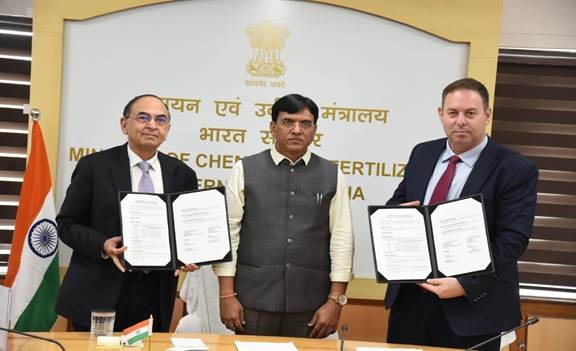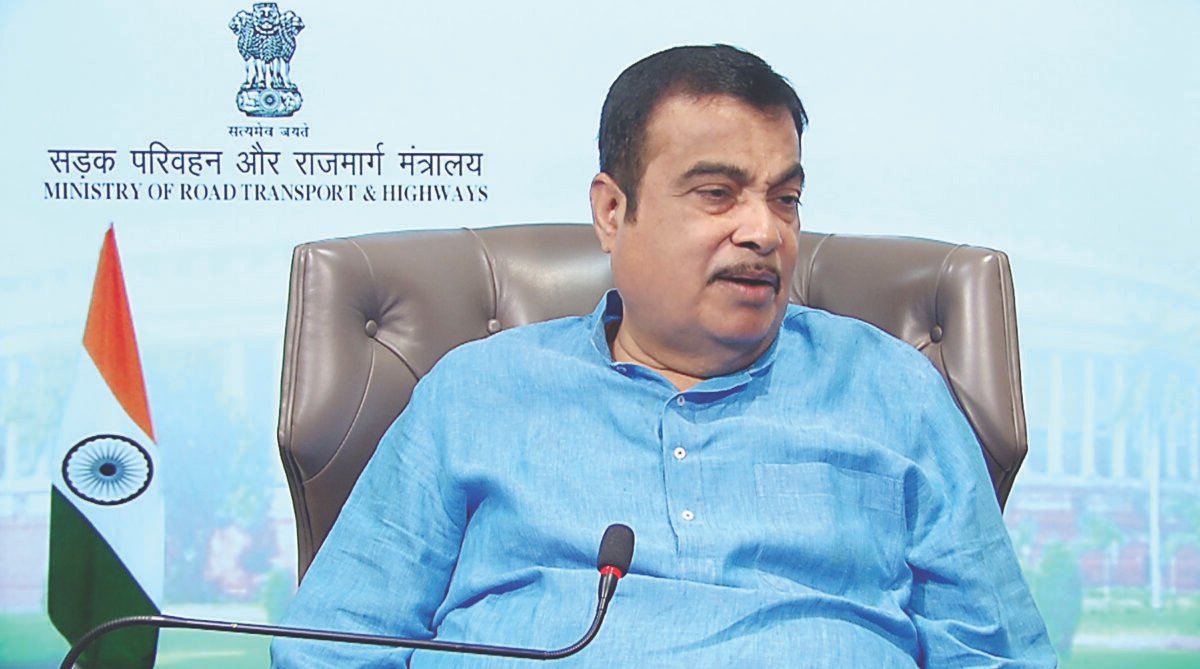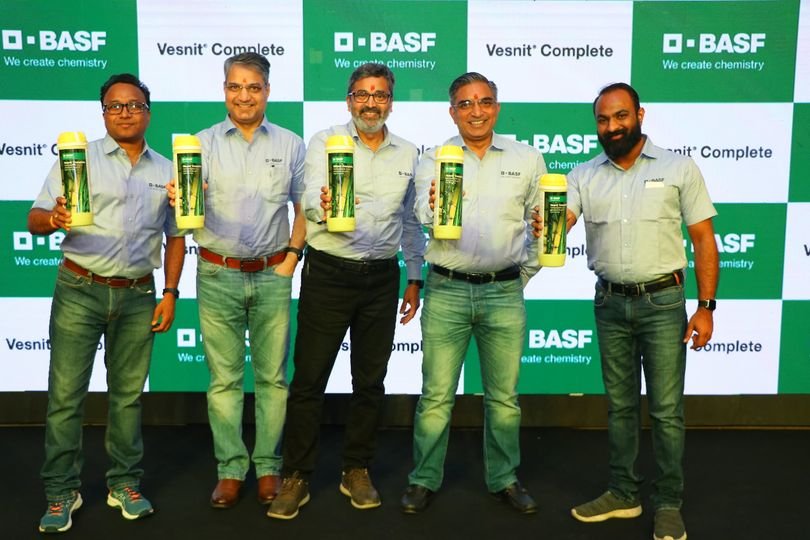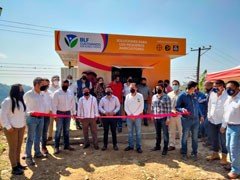IPL inks MoU with Israel Chemicals Limited for the supply of Muriate of Potash (MOP)
Supply of Muriate of Potash (MOP) will be for the period 2022 to 2027 with a yearly quantity of 6 to 6.5 LMT
Indian Potash limited (IPL), under Department of Fertilizers, Ministry of Chemicals and Fertilizers signed an MoU with Israel Chemicals Limited (ICL) for the supply of Muriate of Potash (MOP) for the period 2022 to 2027 with a yearly quantity of 6 to 6.5 LMT in the presence of Dr Mansukh Mandaviya, Union Minister of Health & Family Welfare and Chemicals and Fertilizers today in Nirman Bhawan, New Delhi.
Speaking on the occasion, Dr Mansukh Madaviya said, “India and Israel share an extensive economic, defence, and strategic relationship based on mutual trust and cooperation. Agriculture sector in India has huge potential and provides ample opportunities to collaborate and innovate. India and Israel should work together in the field of Research in Fertilizer sector so that it benefits the farming community”.
The Union Minister added that it is an important step towards increasing the availability of MOP in the country. This will further propel the agriculture production in the country thereby improving the lives of the farming community. It has been a matter of great satisfaction that M/s. Israel Chemicals Limited (ICL) is also working with Indian Potash Limited (IPL) in operating a project titled “Potash for Life focused on achieving higher fertilizer use efficiency” with an aim to increase the income of farmers.
Elad Aharonson, Global President, M/s. Israel Chemicals Limited, applauded the association of his company with India through Indian Potash Limited and stated that M/s. Israel Chemicals Limited will be glad to be associated with the efforts being made in India and willingness to develop a deep association for improved technologies, logistics and application in the area of downstream fertilizers.
Supply of Muriate of Potash (MOP) will














